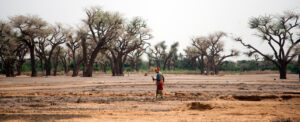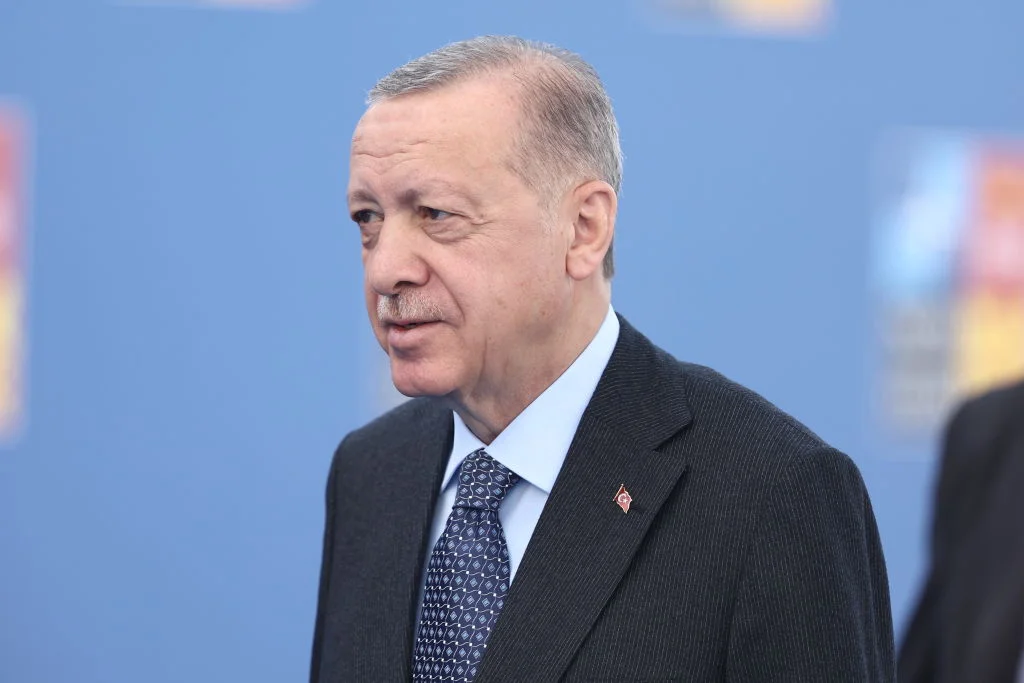The humanitarian situation in Kutum, North Darfur, has deteriorated sharply in recent months, due to increased robberies, destruction of farmland, and worsening health and living conditions.
Kutum, located 160 kilometres northwest of El Fasher, the capital of North Darfur, has seen a surge in roadblocks and robberies carried out by militiamen, particularly on Mondays and Thursdays, which are market days.
“One of the gunmen put his hand under my clothes and touched my body under the pretext of searching for money. Even my one-year-old baby was searched.” – Zainab*
Local sources told Radio Dabanga that gunmen on motorcycles “routinely target residents travelling to and from the market, seizing cash, mobile phones, and essential goods such as bread, sugar, and oil”. Victims have reported being beaten or shot at if they resist.
Zainab*, a displaced person living in the Fata Borno camp in Kutum, described being subjected to a humiliating search by gunmen. Using a pseudonym for security reasons, Zainab recounted how they stole the small amount of money she had earned by selling millet from her farm, leaving her unable to buy necessities for her child.
“One of the gunmen put his hand under my clothes and touched my body under the pretext of searching for money. Even my one-year-old baby was searched,” Zainab told Radio Dabanga.
“The gunmen search us in ways that are humiliating,” another victim said, preferring to withhold her name. “They force women to place their infants on the ground while searching them, claiming they are hiding money in their clothes.”
Several regional and international reports on Sudan have indicated that sexual violence is systematically used as a weapon of war in the ongoing conflict.
Grazing
Farmers in North Darfur are reporting severe losses as armed herders “deliberately release camels onto farmland”, causing widespread destruction of crops and fruit trees. A farmer from the Fata Borno area, speaking anonymously for security reasons, said that “crops such as tomatoes, okra, and onions, as well as fruit trees, have all been wiped out.”
The destruction poses a serious threat to livelihoods in the region, where agriculture is the primary source of income. “This will create a significant gap in the market for vegetables,” the farmer warned, highlighting that Kutum, a major vegetable producer in North Darfur, plays a crucial role in local food supply chains.
Despite numerous complaints lodged with the Rapid Support Forces (RSF), who control Kutum, residents report no action has been taken to address issue. Farmers fear the situation will exacerbate already strained relations between herding and farming communities.
Releasing livestock onto farms during the agricultural winter season remains a significant concern for Darfur’s farmers and villagers. This practice leads to frictions between herding and farming communities and damages large crop areas each year. This not only often results in dozens of deaths and injuries, but has the potential to turn into large-scale, even more deadly tribal conflicts.
In February 2023, the Radio Dabanga team explored the issue of early grazing in North Darfur in a feature.
Living conditions
The situation is compounded by worsening living conditions and a lack of humanitarian aid. Basic commodities have become unaffordable for most residents, with prices soaring amidst dwindling incomes. A sack of sugar now costs SDG 180,000 , a can of oil SDG 75,000, and a kilo of rice SDG 6,500.
Displaced persons in camps such as Kassab and Fata Borno face harsh winter conditions, inadequate shelter, and limited access to aid.
Medical facilities in Kutum are overwhelmed, with hospitals and health centres struggling to cope with a widespread malaria outbreak. While medicines are available in commercial pharmacies, their cost—SDG 60,000 to 80,000 for malaria treatment—is prohibitively high for many.
Kutum is home to approximately 33,000 people, while the wider locality is home to more than 200,000 people. The Rapid Support Forces (RSF) control the area, along with several other localities in North Darfur and the four other Darfur states.
Since mid-October, the RSF and allied militias have been accused of carrying out revenge attacks against Zaghawa communities in Kutum, North Darfur, reportedly burning around 40 villages, according to the Yale University Humanitarian Research Lab.
The post ‘Forced searches and deliberate grazing’ haunt farmers in Sudan’s Kutum appeared first on Dabanga Radio TV Online.
Source: dabangasudan


 NEW REPORT:
NEW REPORT:  analysis shows arson attacks consistent with systematic ethnic targeting by RSF in 26 Zaghawa communities in Kutum locality, North Darfur between 12 Oct-6 Nov 2024.
analysis shows arson attacks consistent with systematic ethnic targeting by RSF in 26 Zaghawa communities in Kutum locality, North Darfur between 12 Oct-6 Nov 2024.









